alcohol addiction
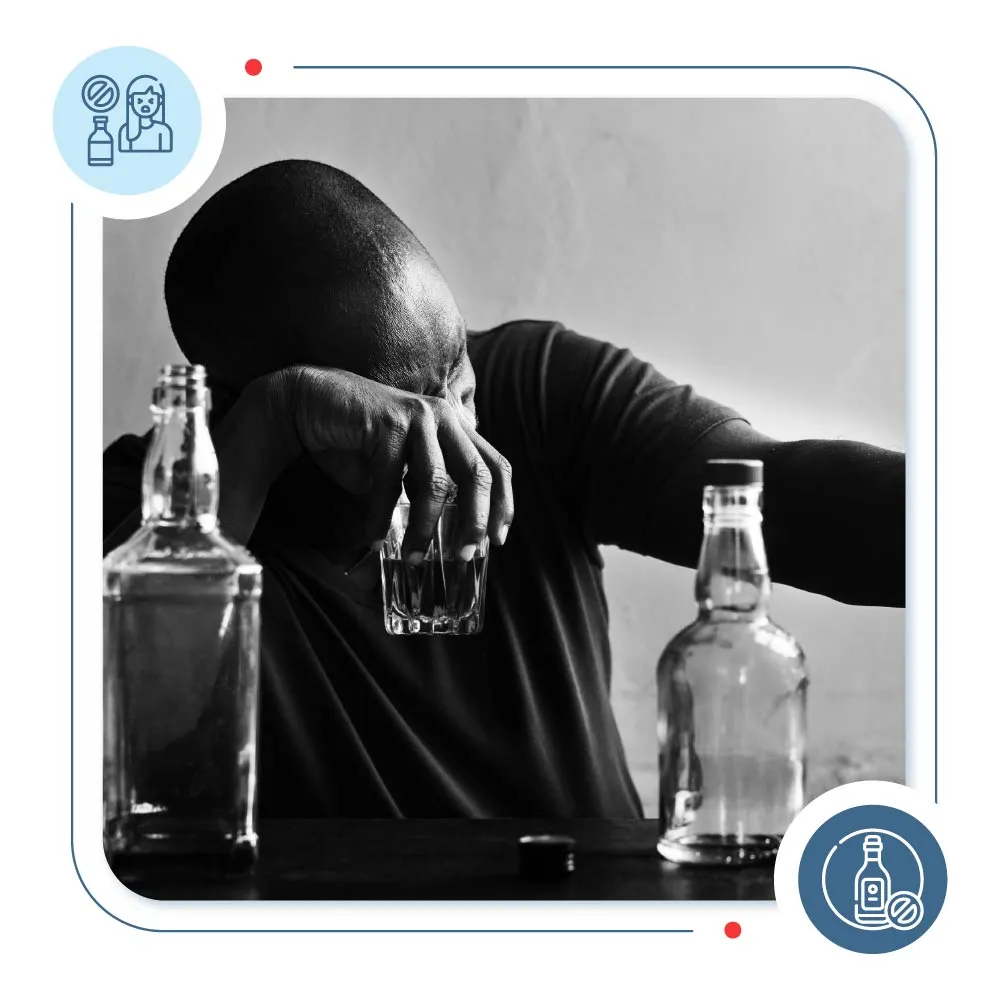
What is alcohol addiction?
Alcohol addiction, commonly referred to as alcoholism or alcohol use disorder, is a persistent, recurring medical condition characterized by uncontrollable alcohol consumption regardless of its negative social effects and health-related consequences. Alcohol addiction can affect anyone, no matter what their age, gender, or race is.
The National Center for Drug Abuse Statistics reports that most American adults consume alcohol at some point in their lives, yet 6.7% of them develop alcohol addiction. The number of alcohol-related mortalities represents 5.3% of all worldwide deaths.
Mid Cities Psychiatry provides you with the most effective treatment options for alcohol addiction in Euless. Book an Appointment and start your journey toward a better future when alcohol addiction becomes a persistent challenge.

Symptoms of alcohol addiction
Alcohol addiction can be hard to identify since drinking is socially and culturally acceptable in several parts of the world. Alcohol is consumed at parties and dinners along with gatherings, which often makes it challenging to point out whether someone is having a few drinks or facing a genuine problem. Look closely for the signs such as:
- Increased tolerance to usual amounts of alcohol
- Unable to stop drinking once started
- Craving for alcohol at work or job
- Drinking in dangerous situations, e.g., driving or operating machinery
- Getting nauseated, shaky, sweaty, or anxious when not drinking for a while
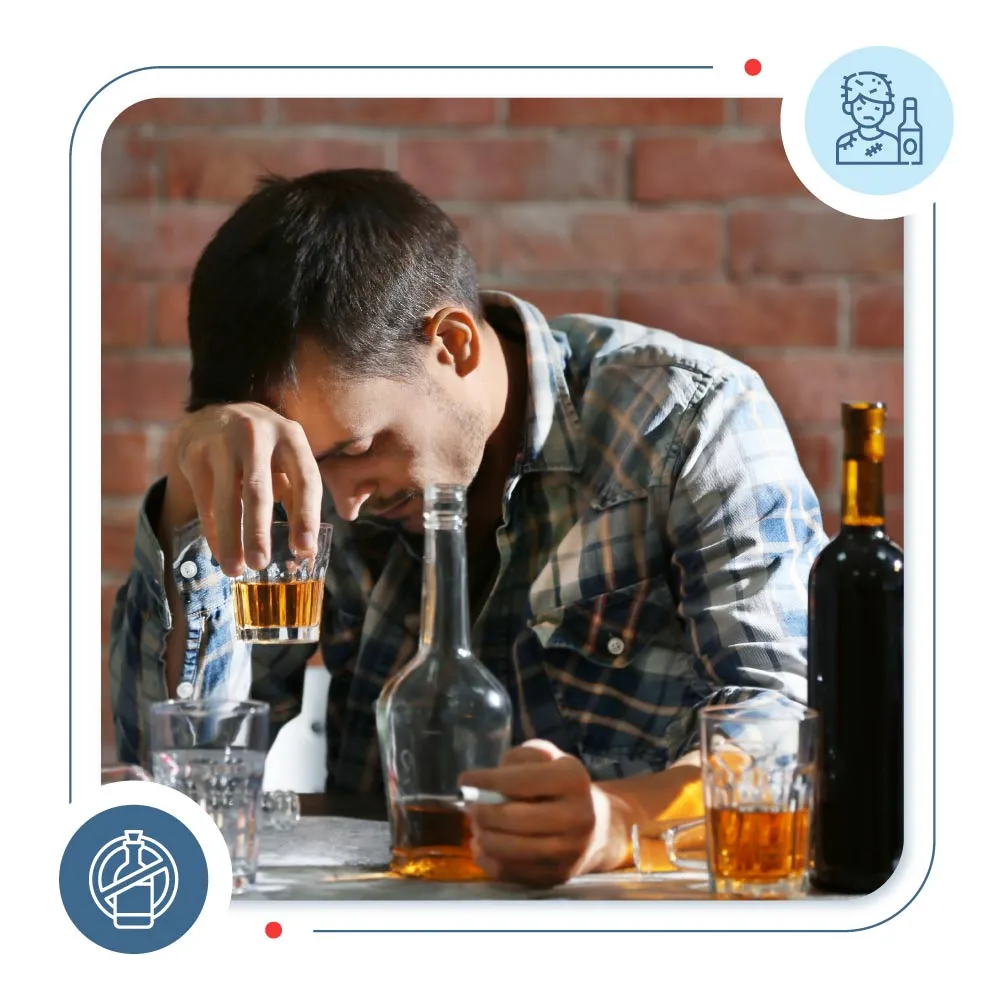

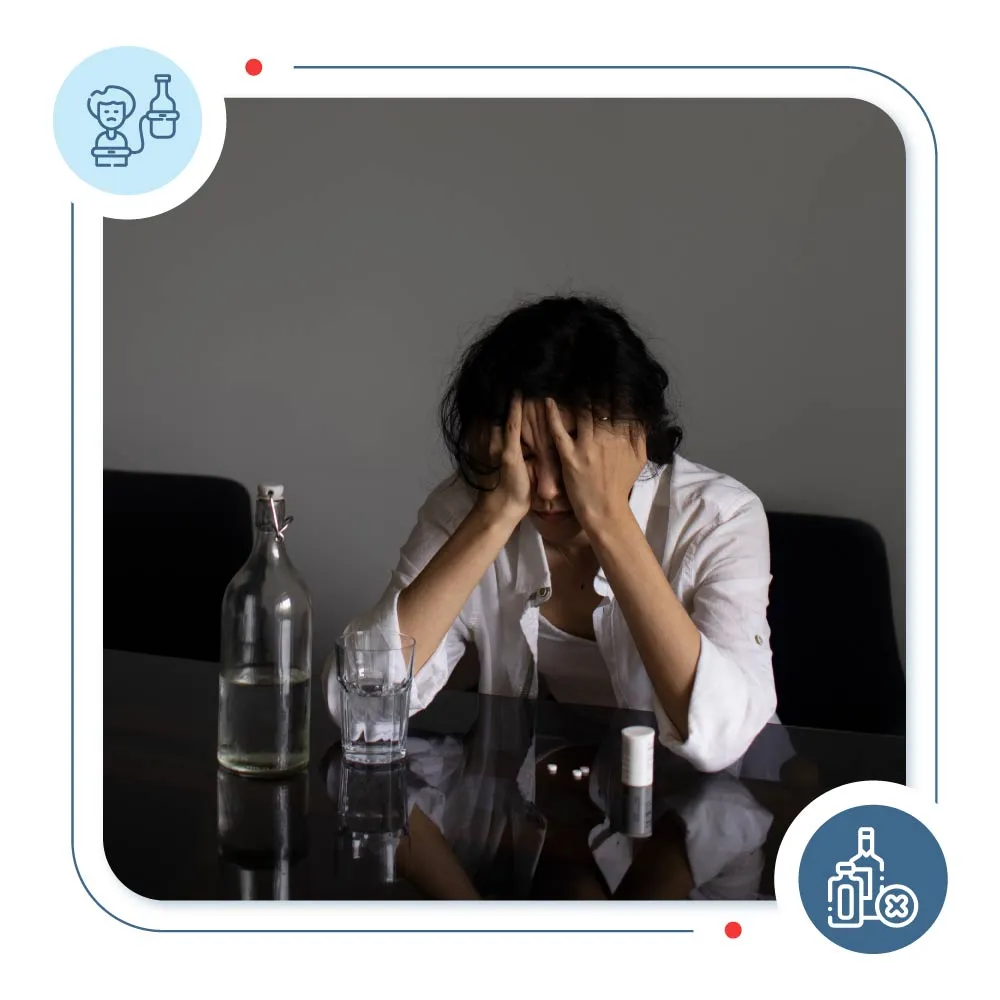
How does alcohol addiction develop?
When you consume alcohol, it acts the same way as any other drug and affects your brain cells. Alcohol affects three major areas of your brain, which are:
- Basal ganglia: This is responsible for motivating you and making new habits and routines. Alcohol manipulates the basal ganglia to produce rewarding effects such as euphoria and reduced anxiety.
- Extended Amygdala: This area contains your brain’s stress system and plays a role in stress management and emotional responses. The extended amygdala overstimulation secondary to alcohol cessation causes alcohol addicts to develop severe emotional pain and irritability.
- The prefrontal cortex: Manages your decision-making power and controls your impulses. Severe alcoholism damages your prefrontal cortex and makes it harder for you to resist alcohol.

Stages of alcoholism
The National Institute on Alcohol Abuse and Alcoholism categorizes alcohol addiction into three main stages as follows:
- Binge/intoxication stage: As you start consuming alcohol, you begin to experience the rewarding alcohol addiction effects like euphoria, better coping with stress, and enhanced social intractability. You’re likely to crave larger amounts of alcohol over time as its enjoyable effects tend to diminish due to tolerance.
- Withdrawal stage/negative effects: When you try to quit drinking, the extended amygdala comes into action and makes you experience withdrawal symptoms such as body aches, sleep disturbances, anxiety, or irritability. This drives you to drink more, not for pleasure but to avoid these negative effects.
- Preoccupation/anticipation: You may successfully avoid alcohol for some period, but your craving gets worse. You eventually end up drinking due to a disruption in the prefrontal cortex of your brain, which regulates decision-making.
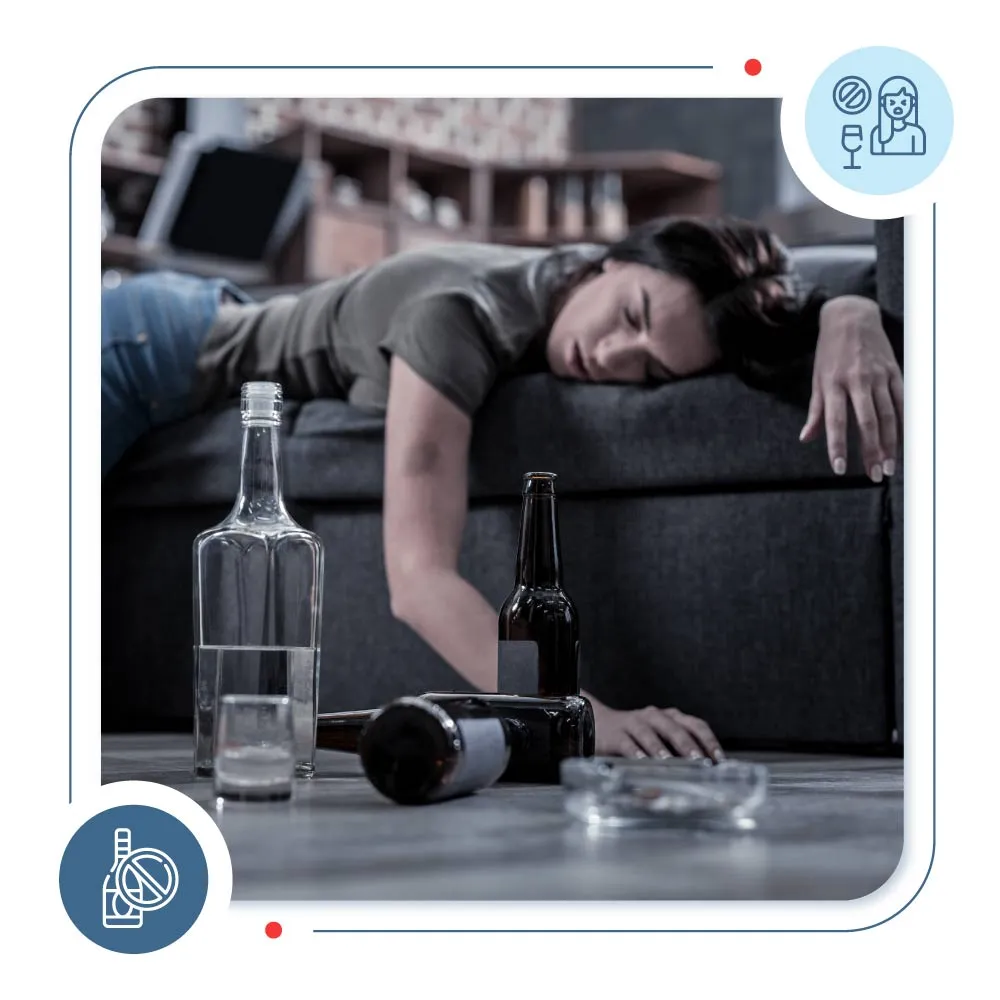


Causes of alcohol addiction
Alcohol addiction doesn’t seem to have a single cause, nor have experts identified a sole causative factor. Nonetheless, drinking addiction stems from several risk factors that may predispose you to severe alcoholism:
- Mental health issues like anxiety, depression, or schizophrenia force you to seek relief in drinking
- Certain social influences, such as peer pressure, a highly stressful living environment, or childhood trauma
- Being exposed to alcohol earlier in life increases your chances of becoming an alcohol addict
- Having a family history of alcoholism

Treatment options
- Medication-assisted treatment
- Psychotherapy
- Detoxification
- Intensive outpatient program
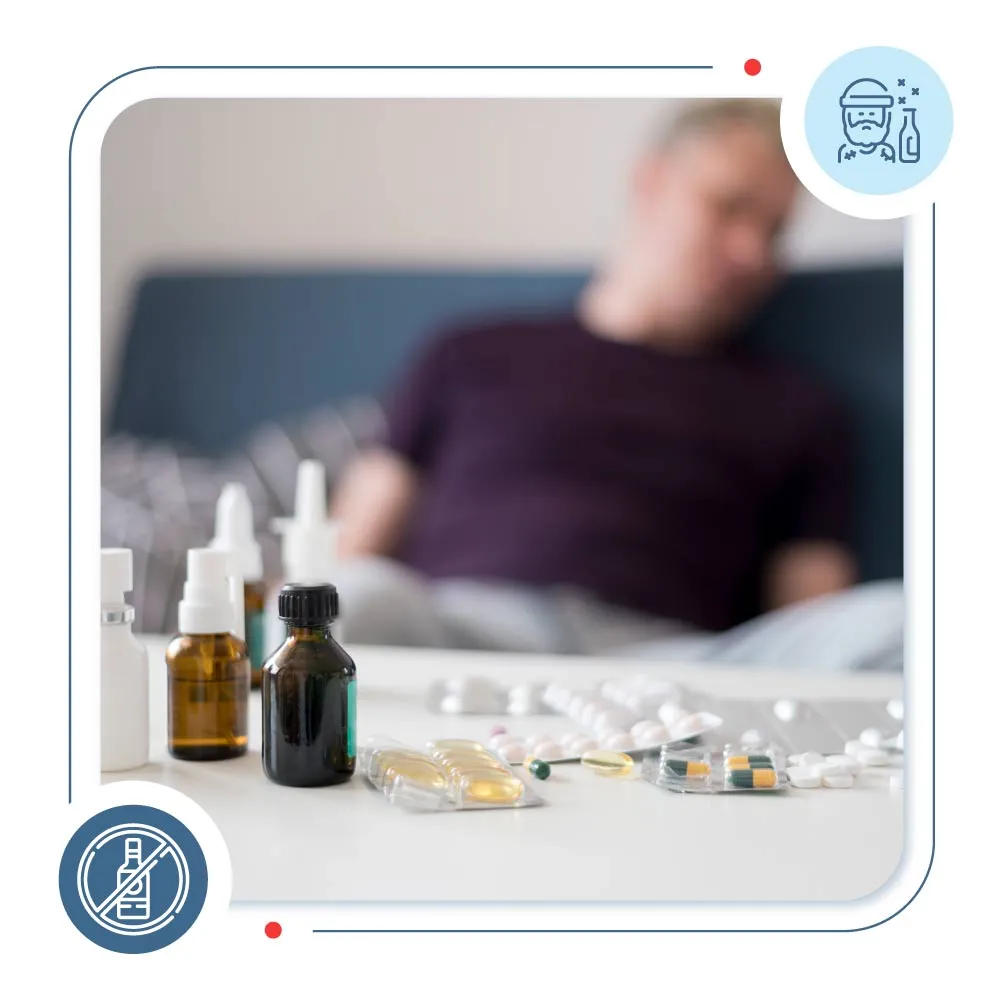

FAQs
01
Which resources contain extra alcohol addiction information?
You can find all types of alcohol addiction information through the National Institute on Alcohol Abuse and Alcoholism’s official website. Besides, you can always reach out to us for further guidance.
02
Is it safe to quit alcohol suddenly?
Quitting alcohol all at once brings about serious withdrawal symptoms that might trigger hallucinations and fits. Getting expert assistance stands as the recommended method for treating addiction problems.
03
What Complications does alcohol addiction bring?
The most catastrophic health effect of alcohol addiction is liver damage. Several physical complications include stomach ulcers, impaired memory, heart disease, and vulnerability to infections. Being an alcohol addict leads to mental health problems, including anxiety, depression, and suicidal thoughts.
04
What is the long-term prognosis of alcoholism?
Real Stories, Real Recovery





We provide a comprehensive care provision for the most common mental issues people struggle with, such as PTSD, ADHD, OCD, anxiety, depression, sleep disorder, schizophrenia, and numerous other mental health conditions.





